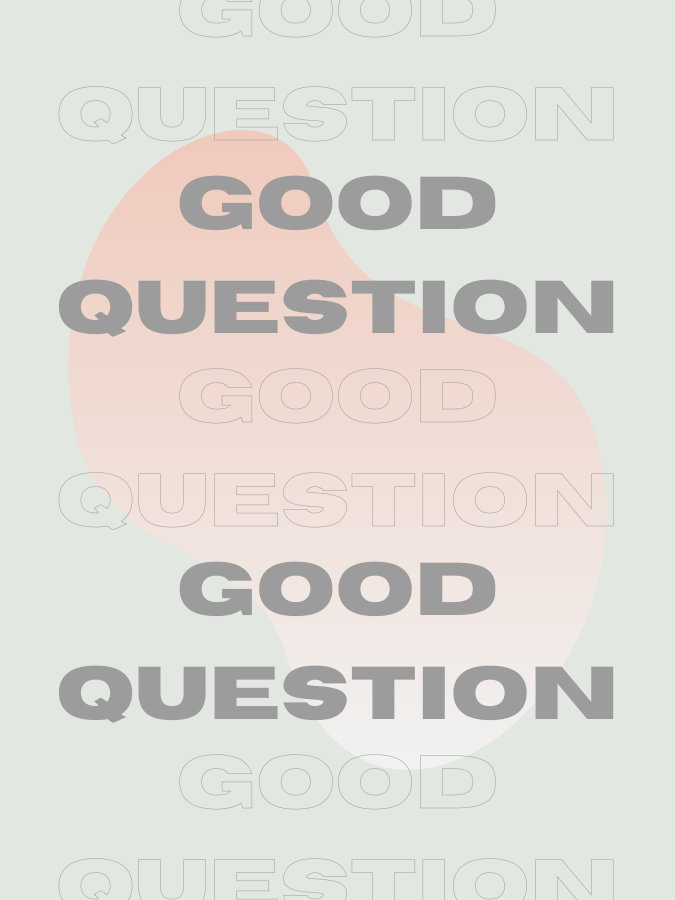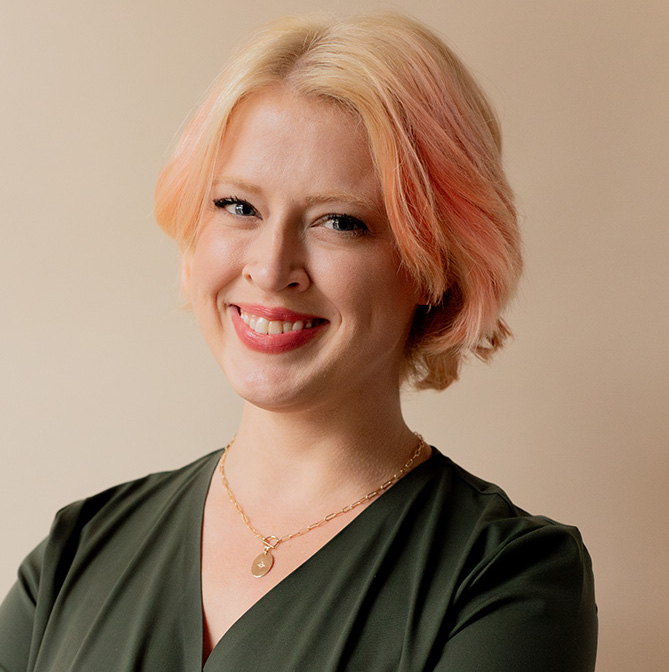
How do I stop judging myself for everything?
Welcome to our advice column where our editors offer thoughtful answers to your pressing inquiries. Head here to submit an anonymous question, and follow here for new Good Questions.✨
I would like to ask how to stop judging myself… I’ve realized that I’ve been judging myself for everything I said or everything I did, regardless of being on a school team project or even in my personal life. Even though I’ve read so many articles and listened to numbers of podcasts, I still cannot help but judging myself the whole time. I wish I could stop torturing myself.
I grew up in a world full of dichotomies: good and evil, day and night, *NSYNC or Backstreet Boys. Everything always felt like it had to have some moral value assigned to it, or else it wasn’t worth anything at all. When I came to the same realization you did—that I judged everything about myself—I had no idea what to do next.
Self-judgment is physically exhausting, not to mention emotionally, mentally, and spiritually draining. So first, let me say, I want you to sit down with the judge in your mind and ask them to take a single day off. They can come back tomorrow, if they want. I’m not ashamed to admit that I do this mentally all the time. (“Hey self, I love you, but can you please stop being so harsh for a hot minute?”) Judgment is painful, so rest. Recover. Love on yourself.
“Judgment is painful, so rest. Recover. Love on yourself.”
I’ve been in the process of learning this myself. So, let’s dive in with a (extremely mild) example from my own life. A couple years ago, I was in a pattern of staying up well past my bedtime and sleeping in on weekends, which I deemed to be immature, irresponsible, lazy, and a sign of my own moral failings. I had even more harsh words for it, but you get the point. I spoke with a counselor about it, and I’ll never forget what she said:
“What if you just looked at the facts?”
She reiterated all my grievances this way: You sleep until 11AM on the weekend. It’s not good, and it’s not bad, either—it’s just a fact.
Now, obviously this fact had implications. My weekend sleep schedule was impacting my physical and mental health, but the judgment of it was only making it worse. I lived in a constant cycle of shame, overcompensating by staying up too late the next day, and punishing myself with less sleep when I clearly just needed more. But I needed to see the objective truth before I could break out of the cycle.
“Feelings matter, but they are also excellent liars. Start with the facts instead.”
Your circumstances will look different than mine, and I encourage you to look at the truth behind each situation you find yourself judging yourself for. Did you say or do something at school that you feel embarrassed by? (I’ve been there). Look at the facts—what you said, how people actually responded (not what you *think* they believe), and try to see if you can identify why you said what you said. Feelings matter, but they are also excellent liars. Start with the facts instead.
And when you’ve actually made a mistake, if you’re acting in good conscience as I assume you are, it is not because you are a bad person. You made a mistake, but you are not your mistakes.
When I started looking at only the facts, my “judgy” voice revealed itself as the voice of a frustrated, scared, and exhausted child. You might also like to call it an ego. So much of my self-judgment came from insecurities, fears about belonging, and past hurts that were never mended. And guess what? Once I discovered all my judgment came from those vulnerabilities, I got to mending.
I stopped believing that I was “bad” and started believing that I existed as a complicated and objective tangle of circumstance and choices. I let go of mistakes more easily, replayed those moments less often, and corrected myself with more humility and tenderness. To go back to my sleep story, instead of forcing a specific sleep schedule that I deemed “good,” I started listening to my body and doing what felt natural instead. And yes, sometimes that included sleeping in.
“If you’re ruminating on something, ask yourself if anything is left in the memory that will serve you… If there’s nothing left to help you, it’s okay to work on releasing the judgment.”
And if you still can’t stop replaying something in your mind, I gently encourage you to forgive yourself. Not only for the incident—but for all the judgment you’ve held about it since then. (My colleague Kayti writes beautifully about self-forgiveness here). Don’t ignore the lessons you learn about along the way, but if you’re ruminating on something, ask yourself if anything is left in the memory that will serve you. Is there a lesson you need to or should accept? Do you still need to apologize or rectify? If there’s nothing left to help you, it’s okay to work on releasing the judgment.
Most importantly, there is no need to judge yourself for judging yourself. It’s like getting a houseplant only to put it on the top shelf of a dark closet—you need space, time, and sunlight to grow. This is not a linear process; you’re not going to wake up one day and be fully judgment-free (speaking from experience!). But one day, if you keep shifting your focus to facts, you’ll hear another voice alongside the judgmental one. And that voice will say, “Actually, I’m not a bad person for this. I am a learning person who’s doing their best. Let’s take the judgment down a notch.”
That’s when you know you’re growing in the right direction. 🌿
“There is no need to judge yourself for judging yourself. It’s like getting a houseplant only to put it on the top shelf of a dark closet—you need space, time, and sunlight to grow.”
Read more Good Questions here.
Have something on your mind? Click the button below 👇 ✨
RELATED READING
Emily Torres is the Managing Editor at The Good Trade. She’s a Los Angeles transplant who was born and raised in Indiana, where she studied Creative Writing and Business at Indiana University. You can usually find her reading or writing, caring for her rabbits, or practicing at the yoga studio. Say hi on Instagram!

